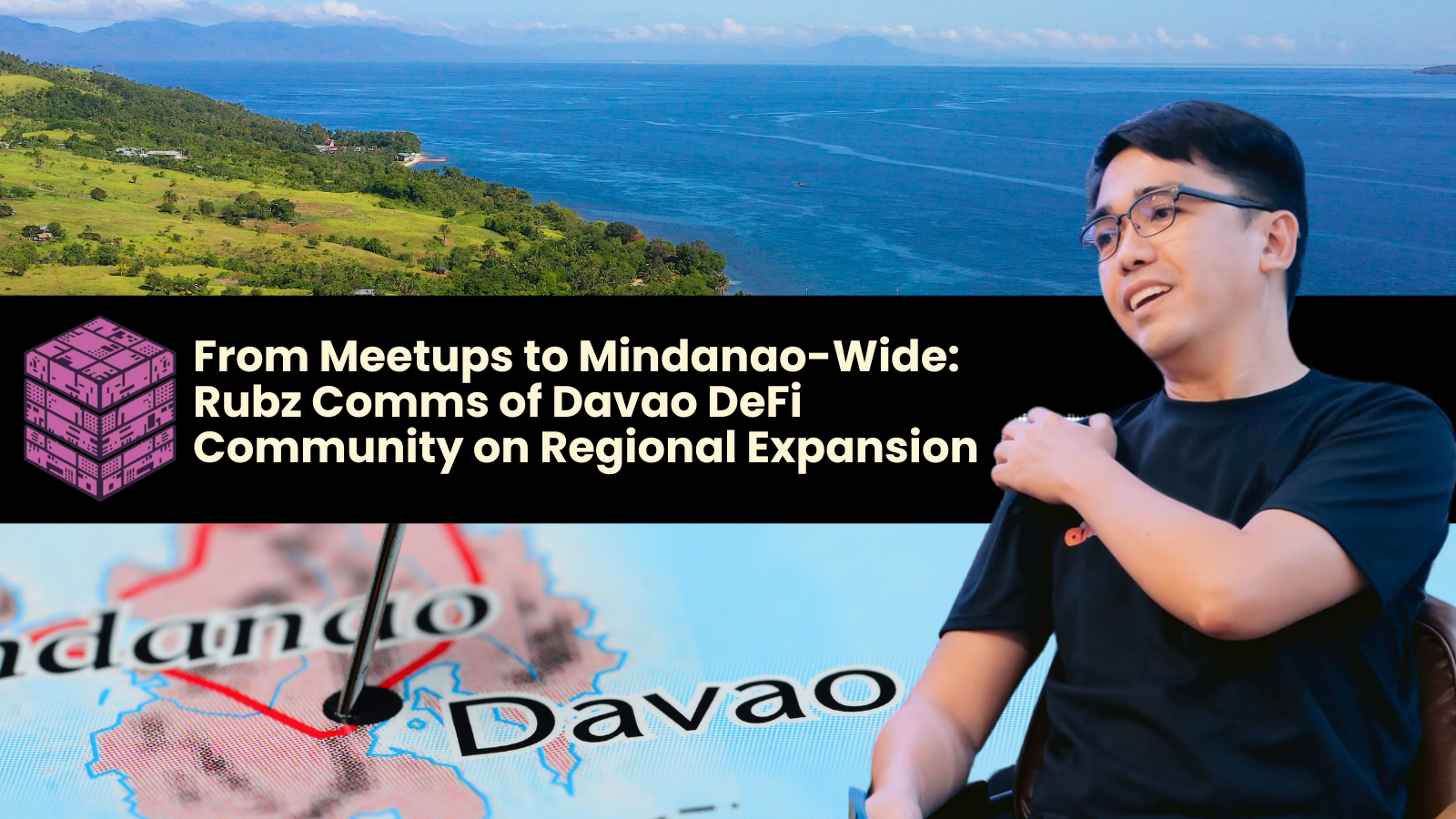Blockchain adoption doesn’t happen overnight, and it doesn’t start in boardrooms. For Davao DeFi, the key to growth has been grassroots education. Now, the movement wants to scale up across Mindanao.
What started as a small gathering of blockchain enthusiasts in Davao has now grown into a recognized community. Now, Davao DeFi Community (DDC) is setting its sights on expanding beyond the city, aiming to bring Web3 education to more communities across Mindanao.
In its early days, DDC struggled to gain traction, with only a handful of attendees at its first few meetups. But persistence paid off. As more people recognized the potential of blockchain beyond speculation, interest in the community grew.
With the shift toward developer education, DDC launched DevCore, a branch dedicated to Web3 development. This initiative has brought hands-on training, hackathons, and mentorship programs to aspiring blockchain builders.
As a result, local developers have started contributing to real-world Web3 projects, further solidifying Davao’s role as a growing blockchain hub.
Looking Outside of Davao City
DDC has also engaged with tech communities like DevCon and has interacted with local government units through meetups and events in Davao City, while its long-term goal is to expand its reach across Mindanao. Rubz Comms, founder of DDC, told The Block and Beyond:
"So yeah, that's still the main goal of DDC. We could expand furthermore in Mindanao in the context that we will be a helper to build more communities from different regional places. So with our partners, we'll be going to approach more other partners to realize this main goal."
While Davao City has been active in blockchain adoption, it is not the only player in the space.
UnionBank of the Philippines has also explored blockchain applications, particularly in financial inclusion. The bank piloted a cross-border remittance service for rural banks, successfully transferring tokenized fiat from OCBC Bank in Singapore to Cantilan Bank, a rural lender in Surigao del Sur, through its blockchain platform, i2i, according to BusinessWorld.
While this highlights institutional adoption, it does not directly address how locals are educated on blockchain technology. Rubz Comms has emphasized an education-first approach, focusing on equipping individuals with the knowledge to navigate Web3.
Education and Adoption
Web3 adoption in the Philippines faces several challenges beyond just access to technology. Many Filipinos still associate cryptocurrency with speculation rather than innovation, making it difficult to shift the conversation toward real-world applications.
Education gaps also play a role, as many people are unfamiliar with blockchain fundamentals, leading to skepticism or hesitation in embracing the technology. Davao DeFi aims to bridge this gap by focusing on education-first initiatives that simplify complex concepts, making Web3 more accessible to everyday users.
Rubz Comms also commented on the complexity of the space, which is another limiting factor in getting more Filipinos onboard. He explained the importance of simplifying the use of Web3 solutions to make it easier for the end user.
"Repackage where you're going to deliver... (for) the technical side... (and) on the narrative side, because there are users also that they just want to use the product, benefit from it."
As Web3 adoption in the Philippines remains largely concentrated in major cities, DDC’s efforts challenge that trend. The group is proving that decentralized technology has the potential to thrive beyond Metro Manila’s business and financial districts, with Davao positioned as a promising hub for blockchain innovation.
With expansion as a long-term vision, Davao DeFi continues to focus on strengthening its local presence and deepening its impact within the city. While future partnerships and regional growth remain part of its roadmap, the community remains committed to its core mission—building a strong foundation for Web3 education in Davao.







